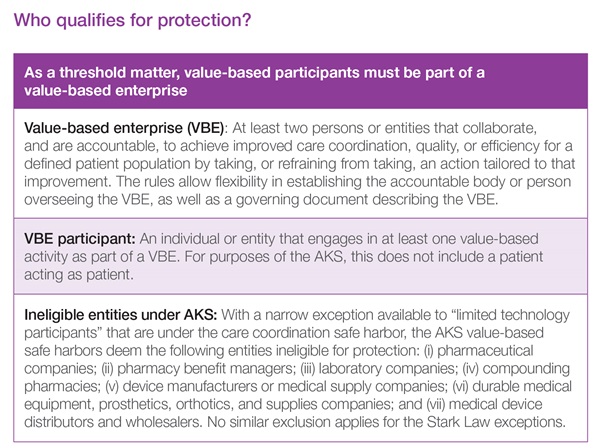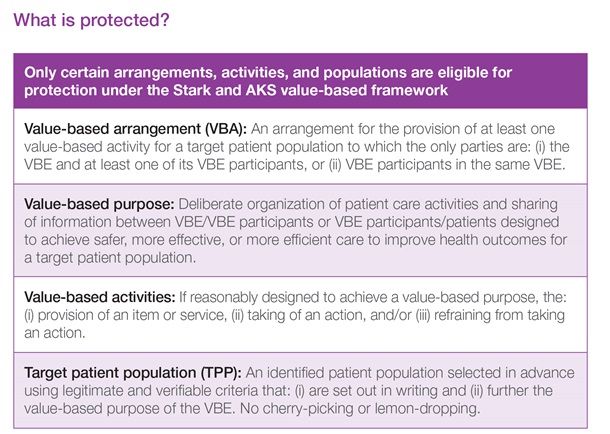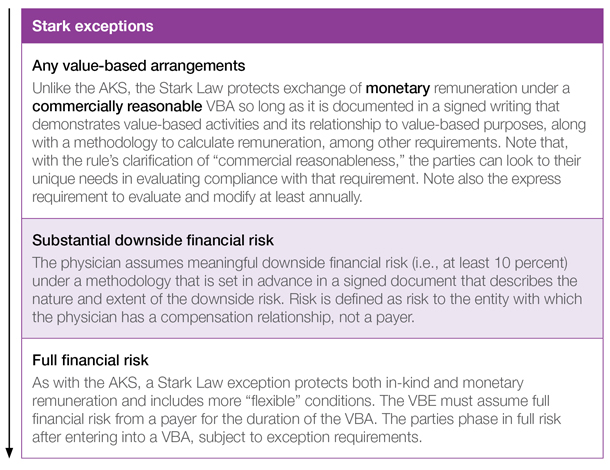Read time: 5 minutes (1087 words)
This overview is designed for health care stakeholders currently engaged, or seeking to engage, in value-based arrangements that implicate the federal Stark Law and Anti-Kickback Statute (AKS). In November 2020, the U.S. Department of Health and Human Services (HHS) released coordinated final rules for both laws, which we have previously covered in significant detail (Read about the October 2019 proposed rule; More on the proposed rule and the November 2020 final rule).
These final rules primarily aim to remove obstacles to value-based care, which enables payers and health systems to reward health care providers and suppliers for adopting cost-saving protocols, avoiding waste, and improving quality of care. Both the Stark Law and AKS were developed to address fraud and abuse concerns in a predominantly fee-for-service health care reimbursement environment. As a result of increased interest and investment in value-based care, HHS recognized the need for new exceptions and safe harbors to provide flexibility for value-based arrangements.
The new final rules are complicated. This piece therefore seeks to provide a high-level roadmap to help health care providers and companies that are considering structuring value-based arrangements.

- As a foundation for protection, establish a VBE, either through a separate risk-bearing entity or a collaboration between two persons or entities
- Determine VBE participants and value-based activities (note: referrals and marketing do not qualify)
- Evaluate nature of VBA remuneration to assess protection options
- Monitor arrangement to ensure continued compliance with applicable Stark Law exception and AKS safe harbor



